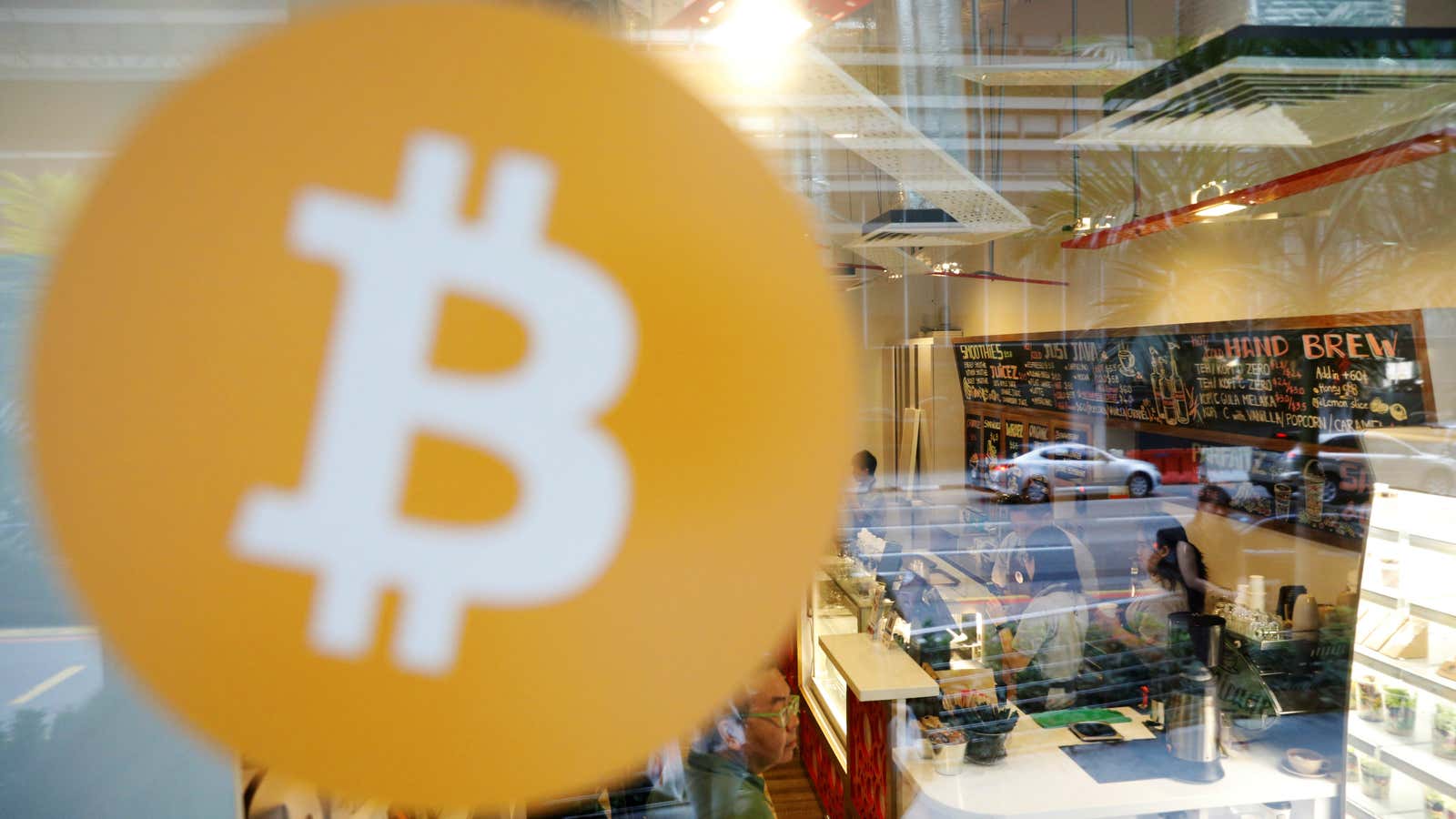Silicon Valley’s dream of a stateless digital currency for payments goes back to the early days of internet entrepreneurship, just before the turn of the century: Peter Thiel has said PayPal, the highly successful payment company he co-founded, fell short when it comes creating the “new world currency” it once envisioned. Bitcoin comes closer in some ways to realizing that goal, yet one of the technology sector’s most ambitious startups says the cryptoasset still has serious shortcomings.
Stripe, a San Francisco-based payment processor for more than 100,000 businesses, said yesterday (Jan. 23) that it will stop processing bitcoin transactions on April 23. Stripe product manager Tom Karlo said the firm, which has accepted bitcoin for payments since 2014, had hoped the digital coin would become a “universal, decentralized substrate for online transactions” that helps users in places where credit cards are less available or too expensive.
So far bitcoin is turning out to be more like digital gold than a currency for small or frequent payments. Transactions are taking longer to confirm, and the sheer volatility has caused failures because transactions are ending up in the wrong amount of fiat currency. A regular bitcoin transaction typically costs $10 or more in expenses, Karlo said, which is comparable to a bank wire.
“There are fewer and fewer use cases for which accepting or paying with Bitcoin makes sense,” he wrote. Businesses that accept the original cryptoasset have seen their revenues from bitcoin drop.
Thiel said as much in his Reddit “Ask Me Anything” session in 2014, when he pointed out that bitcoin may be a new currency, but it’s lacking as a payment mechanism. He said he would be “more bullish” when the payment volume increases. (Thiel has also invested in Stripe.)
Instead, bitcoin has succeeded as an asset (or, said another way, speculation has run riot). While revenue from payments has declined, trading has skyrocketed—Coinbase, one of the largest US exchanges for crypto, had $1 billion in revenue last year, according to Recode. Wall Street is looking for ways to get involved in the mania, and Founders Fund, the venture-capital firm co-founded by Thiel, bought $15 to $20 million worth of bitcoin last year, according to the Wall Street Journal (paywall). In that way, bitcoin is a victim of its own success—with the price increasing so quickly, spending it makes little sense.
Bitcoin’s role as the reserve asset of the future isn’t exactly assured either. Regulators around the world are cracking down on crypto—China has widened its trading ban, and Polish prime minister Mateusz Morawiecki said today in an interview on Bloomberg Television that his country is considering its own ban.
Newer digital assets could improve on what bitcoin started. While aspects of its software architecture go back about 10 years, Stripe suggested that initiatives like Lightning could help speed up payments, while a variant like litecoin or bitcoin cash could keep processing costs lower while making transactions more quickly. Stripe even held out hope for bitcoin payments, noting that it could still somehow become viable again.
